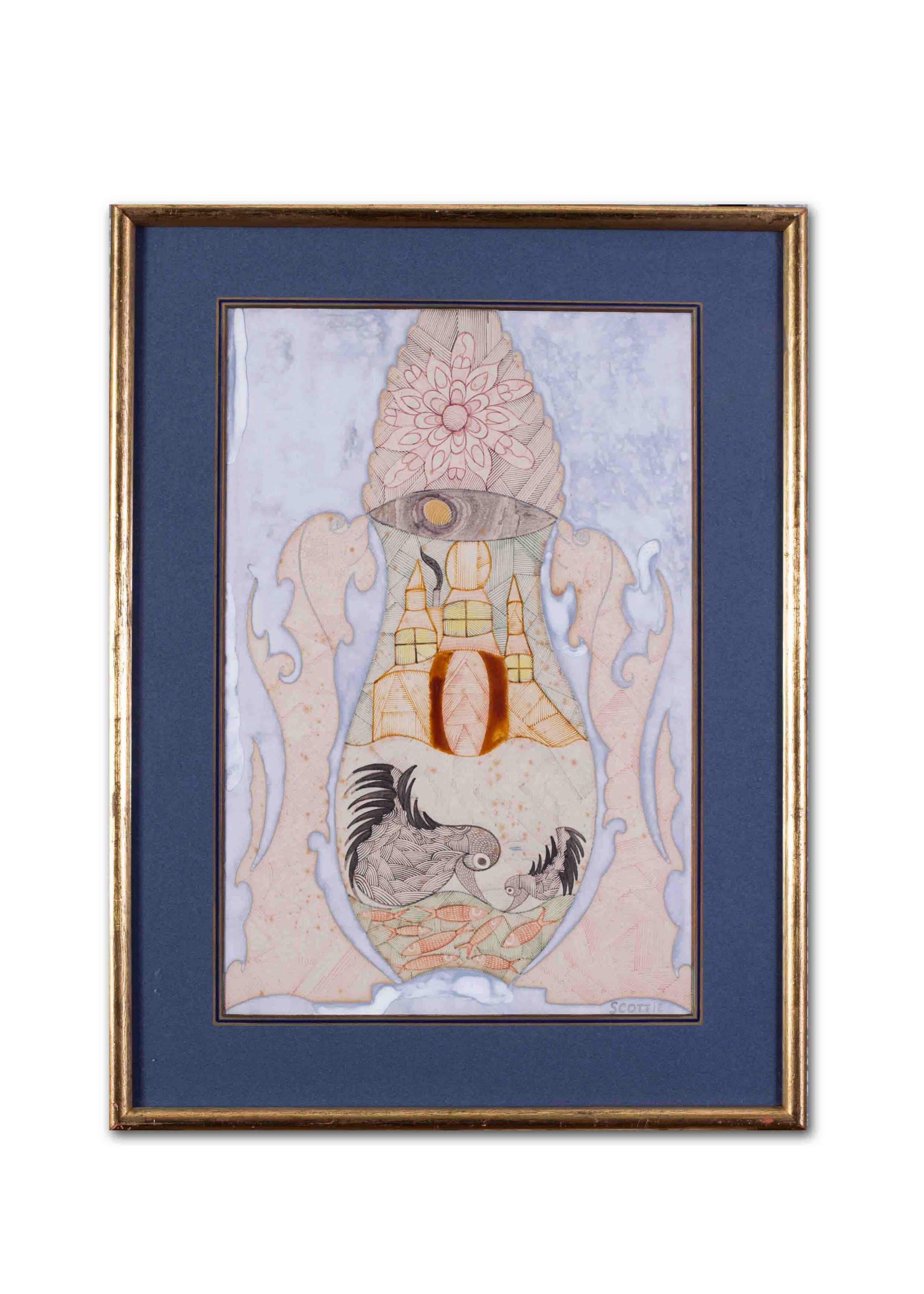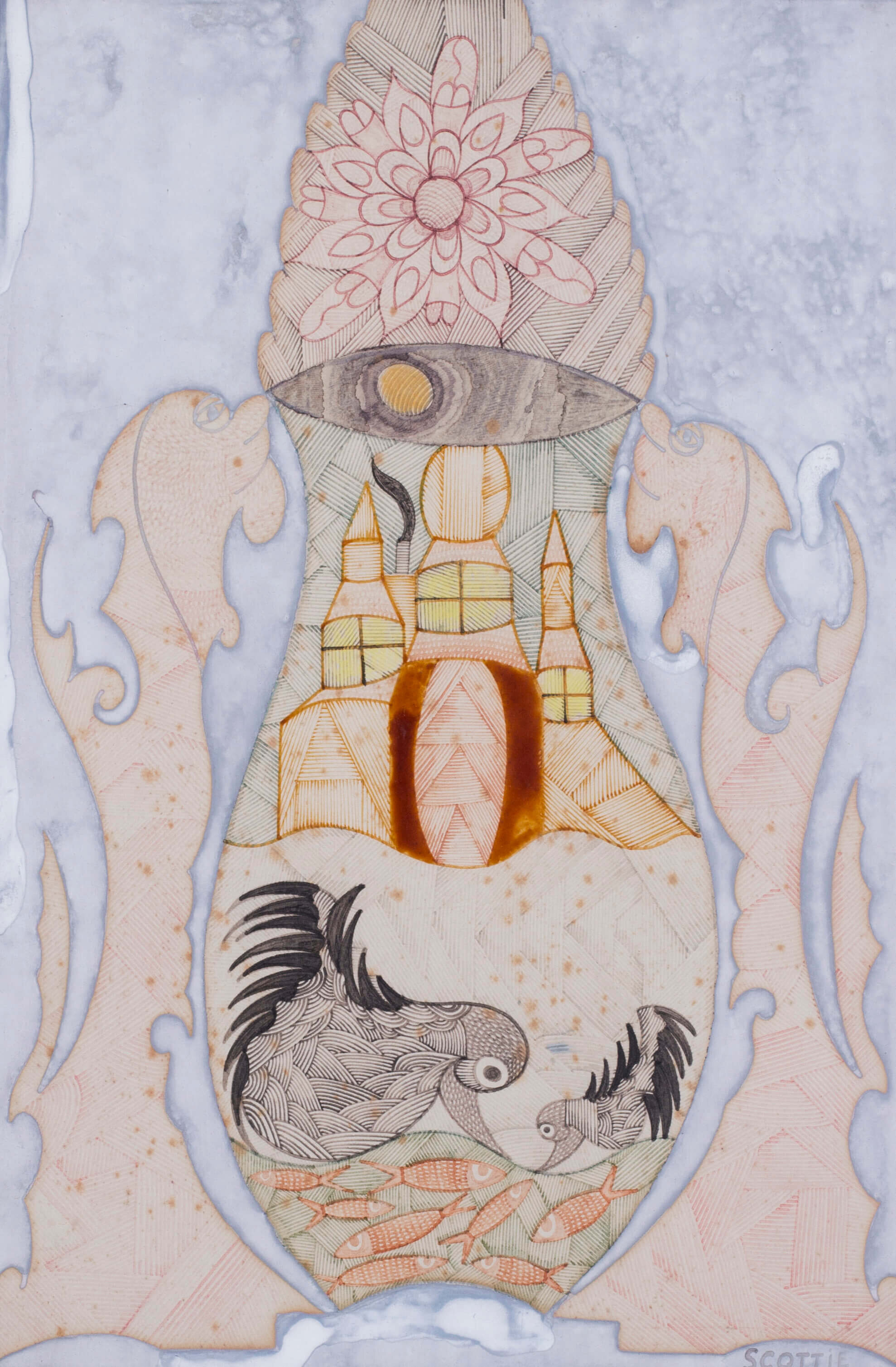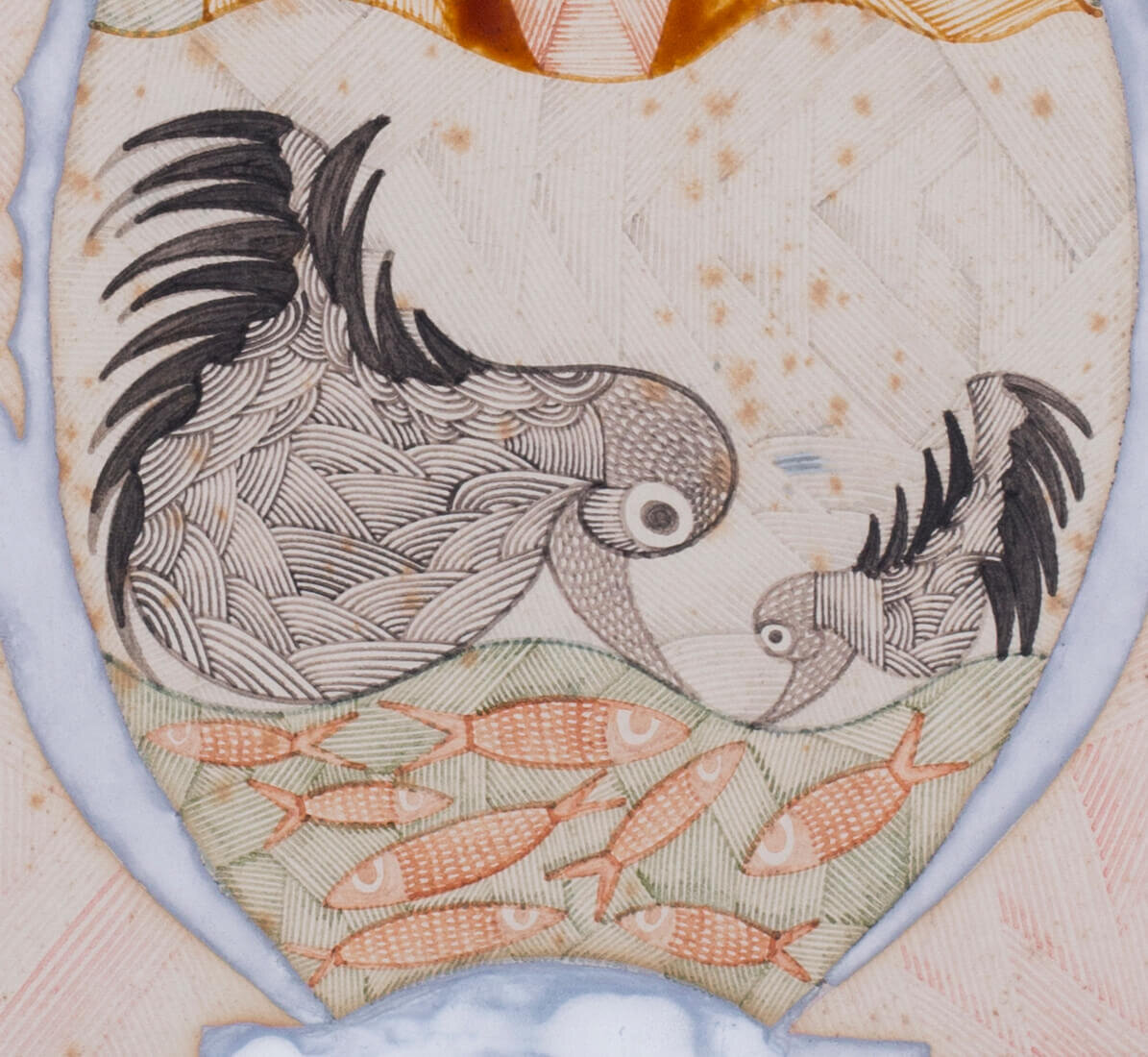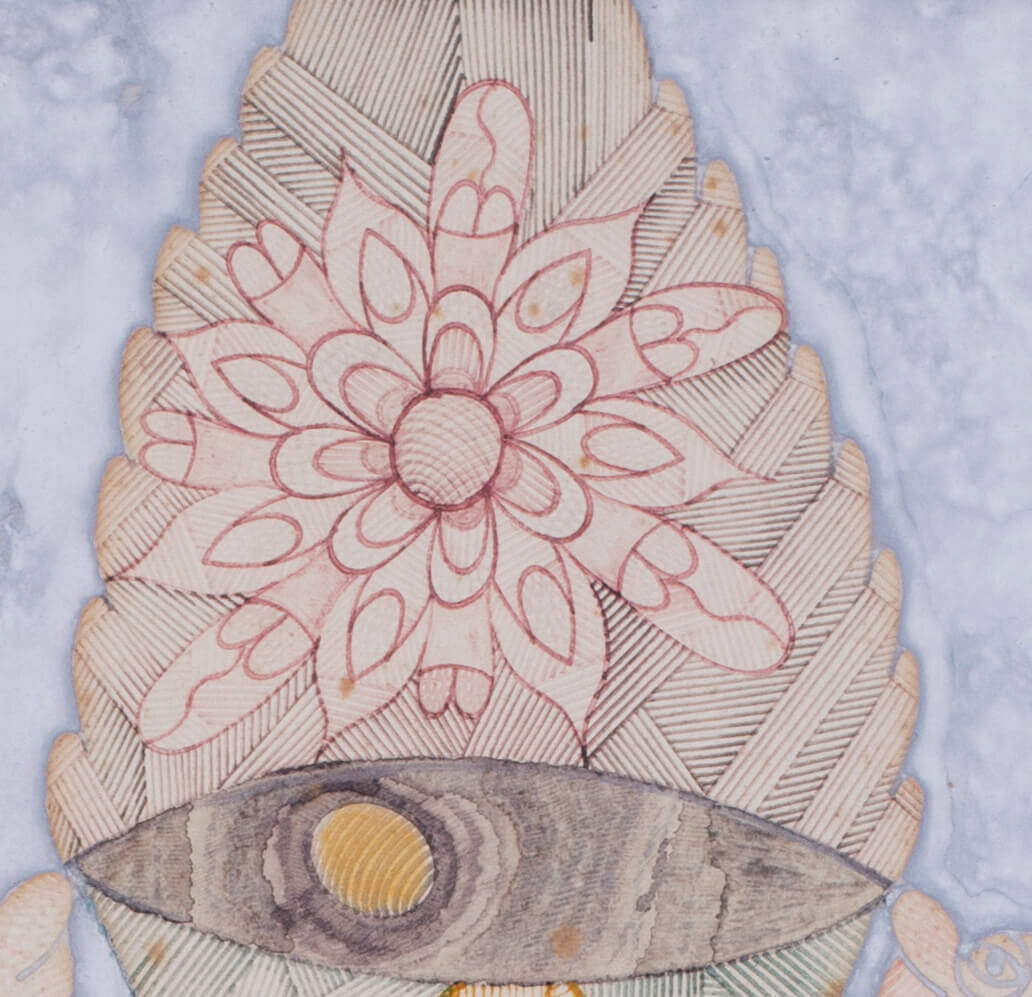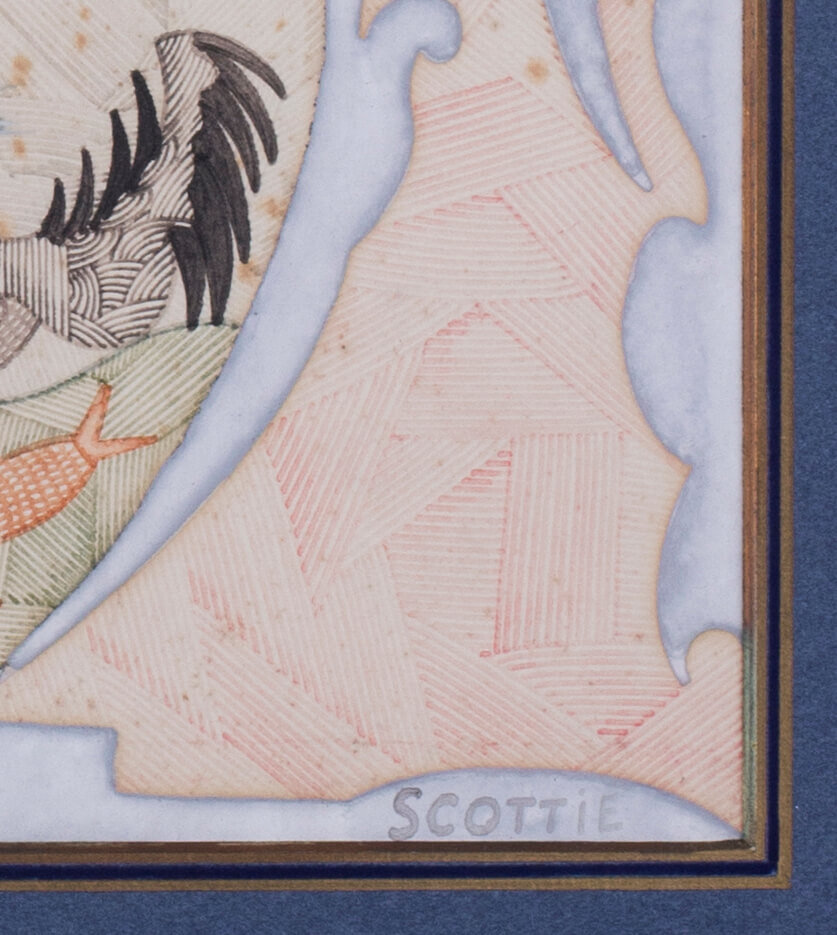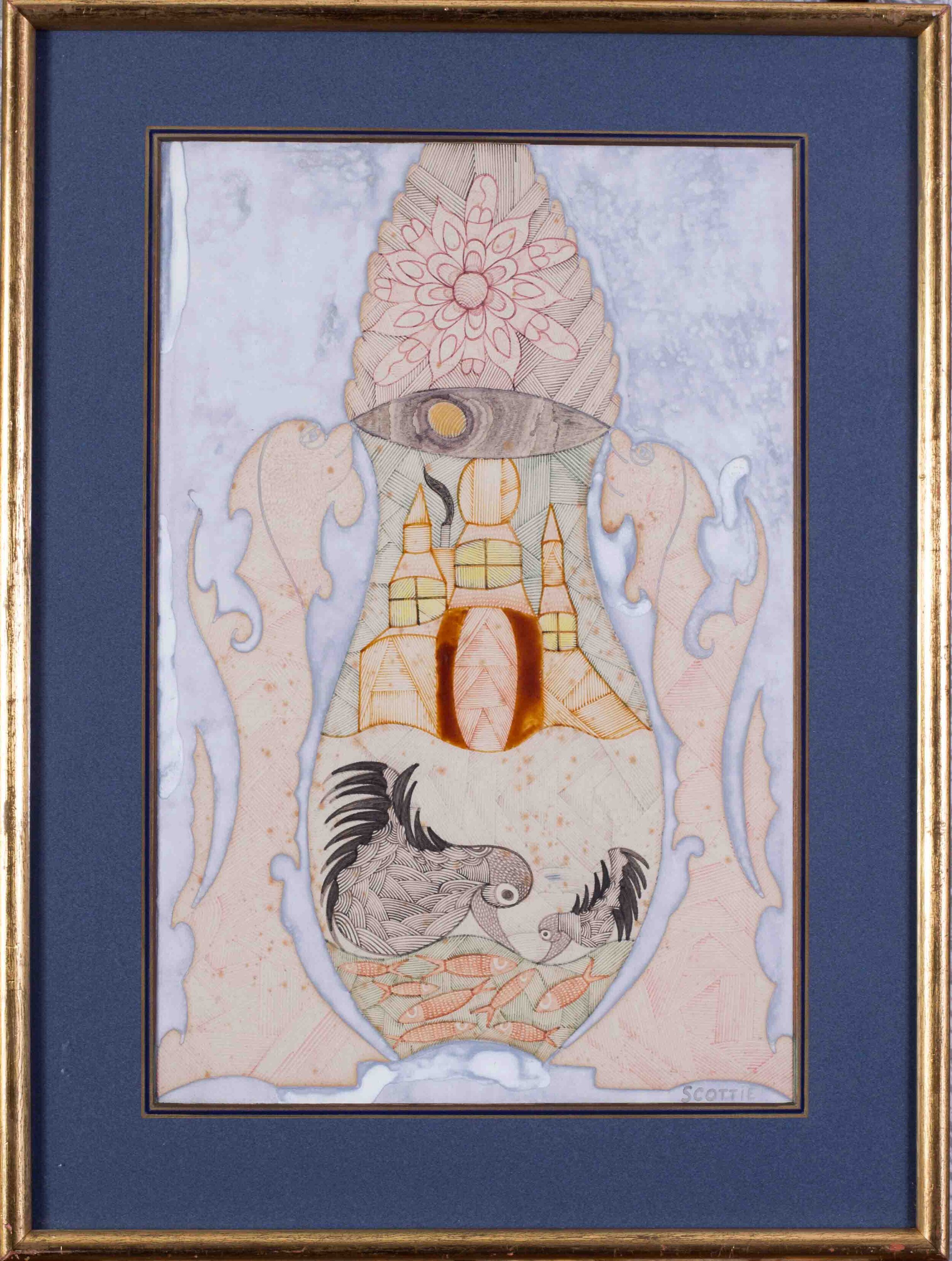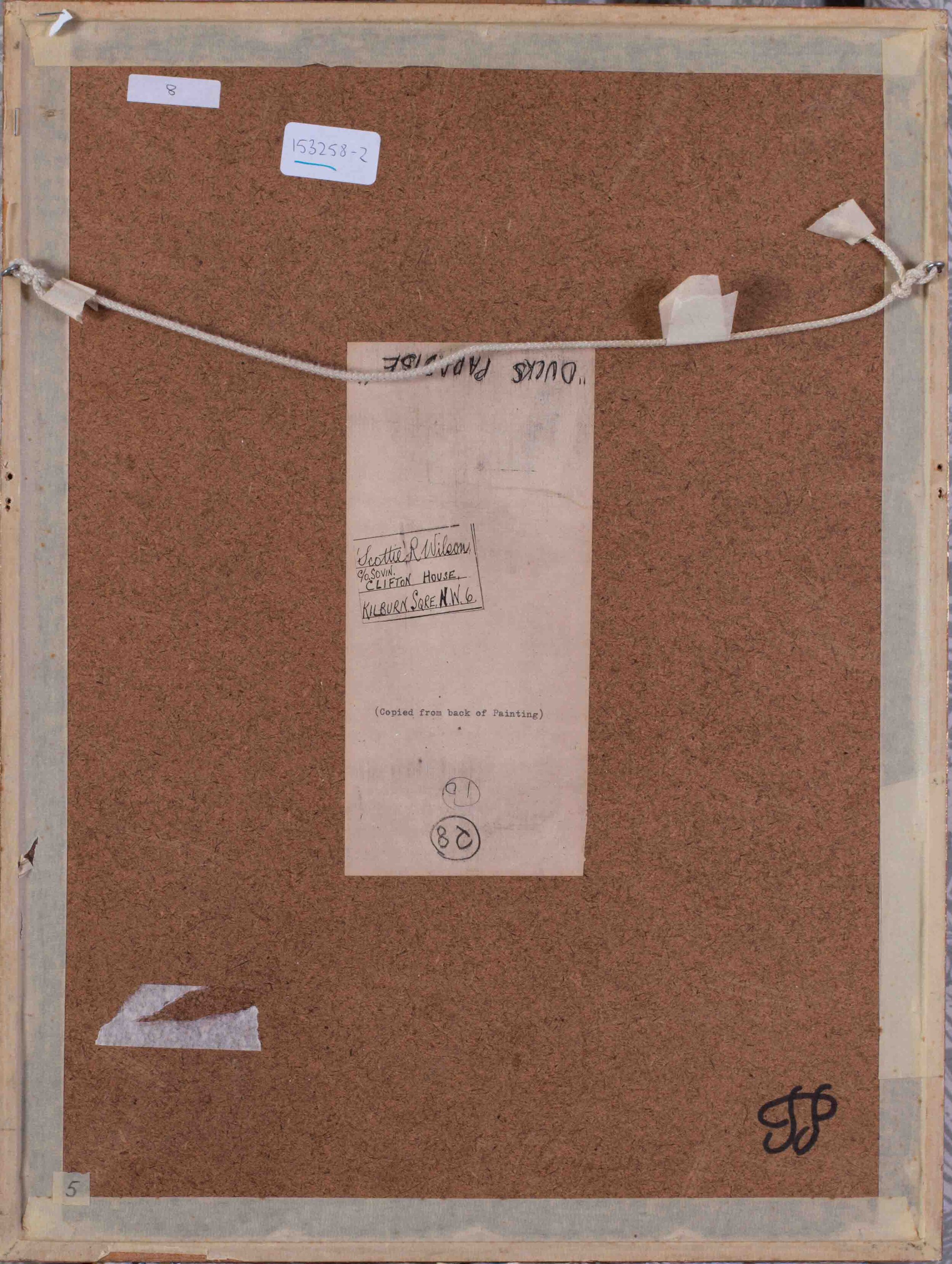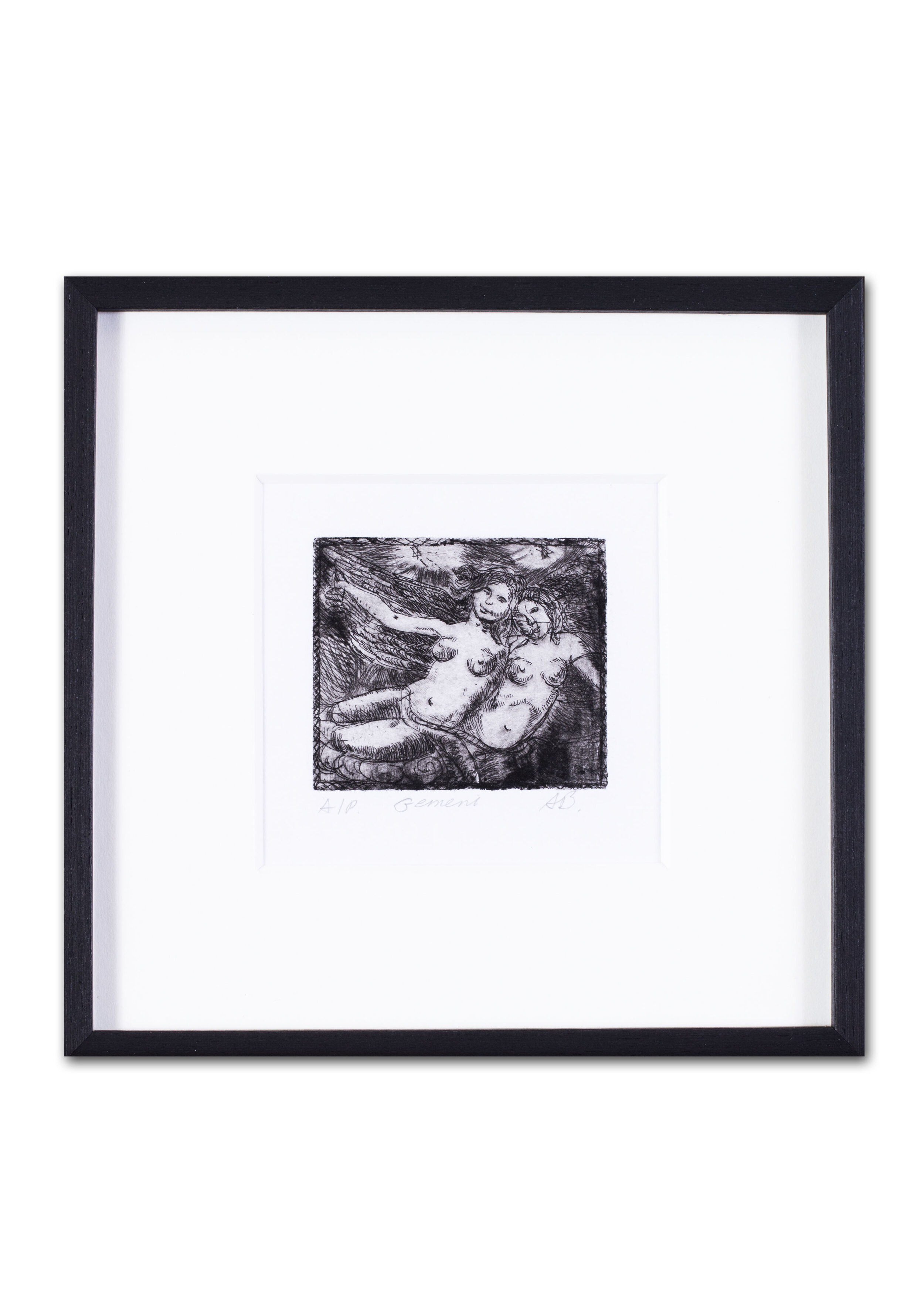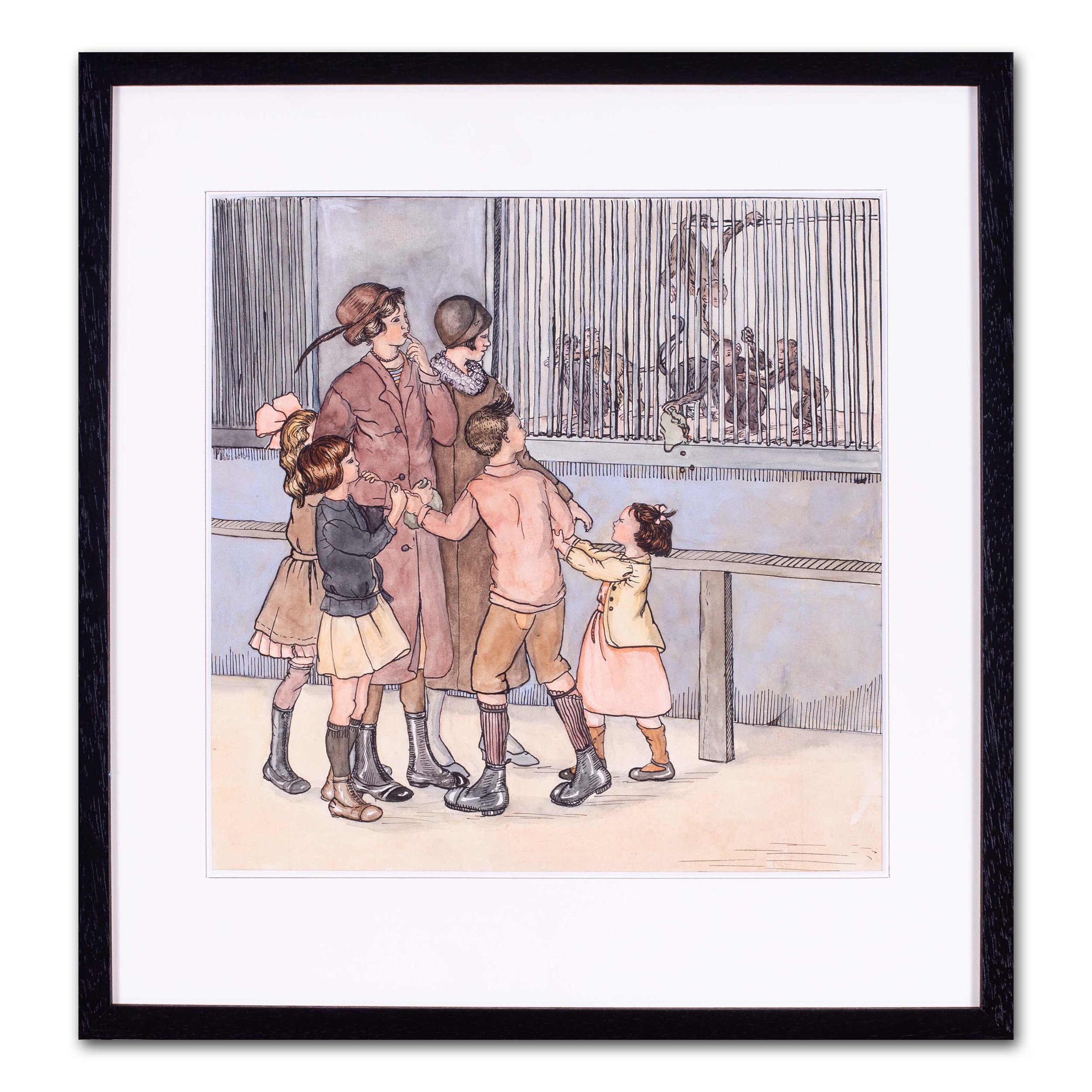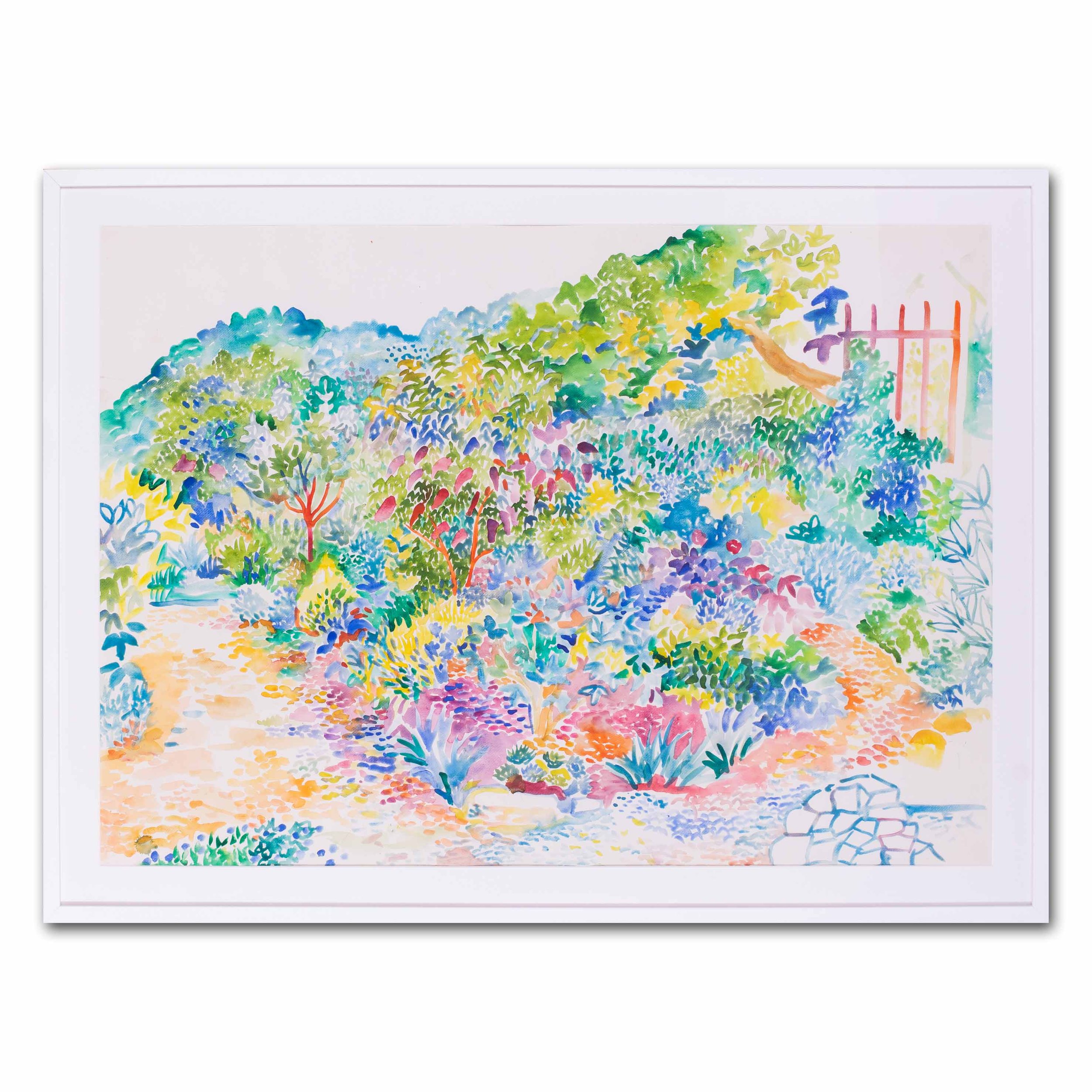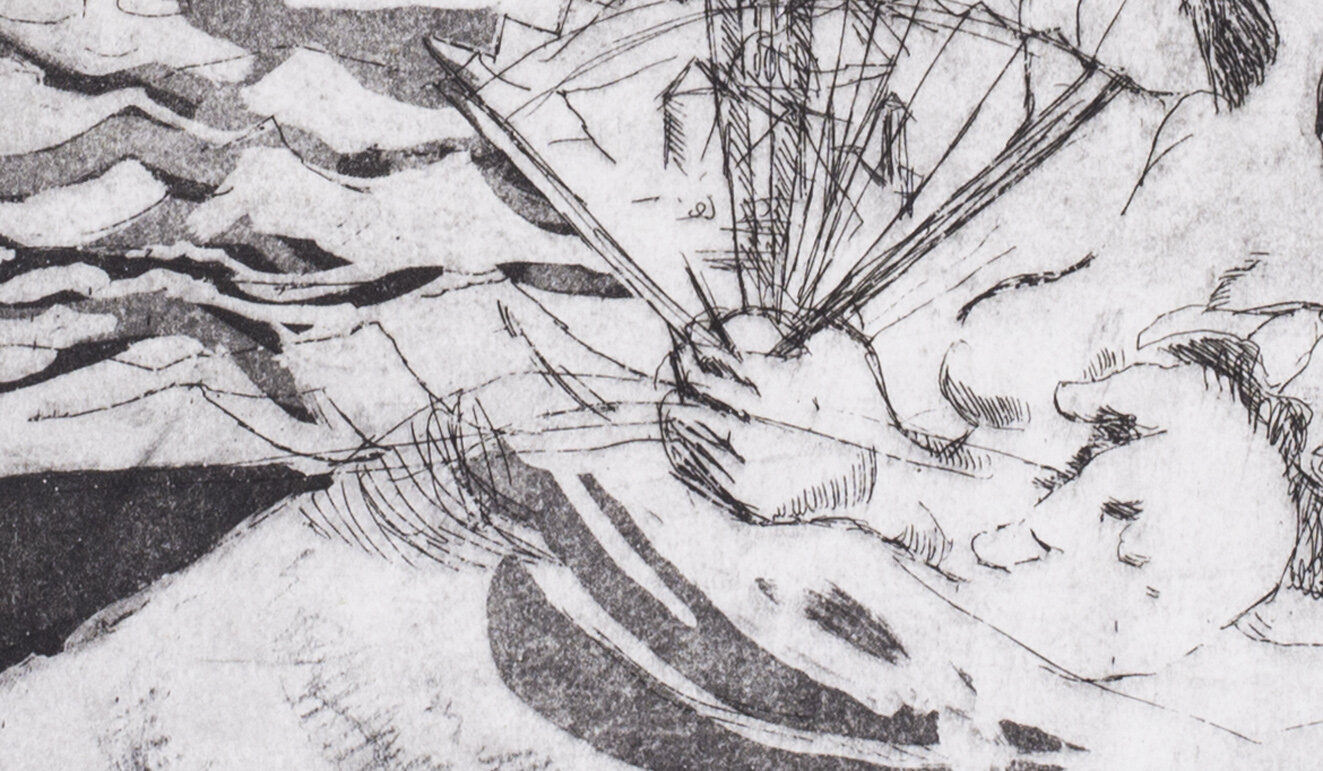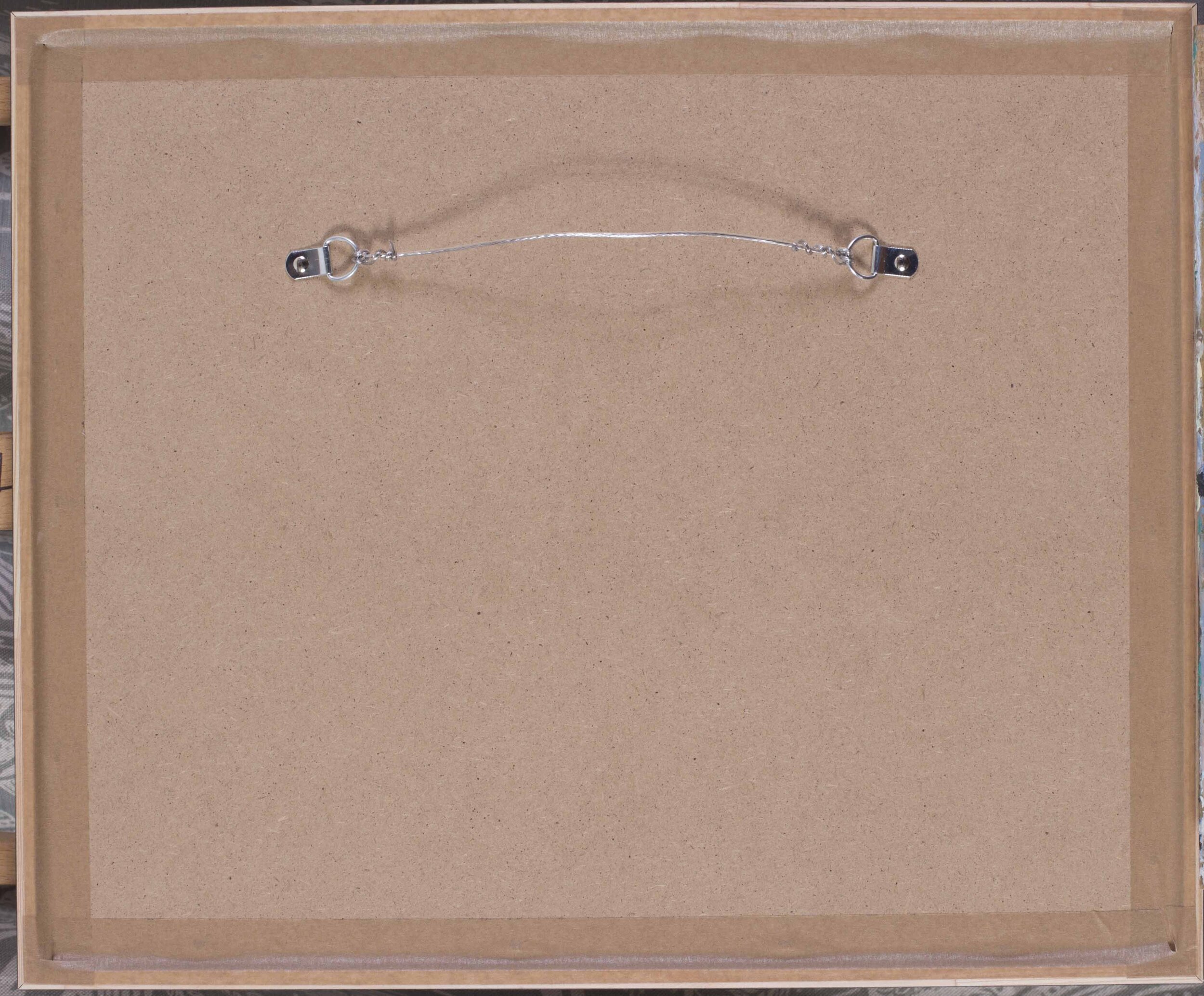Scottie Wilson, 'Ducks paradise'
Scottie Wilson, (Scottish, 1888 – 1972, born Louis Freeman)
Ducks paradise
signed ‘Scottie’ (lower right), further signed and inscribed with title on the reverse.
ink and gouache on paper
37 x 25 cm. (to mount edge)
Scottie Wilson was an ‘Outsider’ artist known particularly for his highly detailed style. He started his career relatively late at the age of 44 and was admired and collected by the liked of Jean Dubuffet, Pablo Picasso and Andre Breton. He started painting after doodling with one of the ink pens he sold in his shop. It seemed to be a seamless process and within a couple of days he had covered the whole of the table top with little faces and designs. He never stopped after that point. He had a deep personal code of morality and characters called ‘evils’ and ‘greedies’ are juxtaposed with symbols of goodness and truth. He found it difficult to part with this work but decided it was preferable to shop keeping. He had a deep distrust for art dealers but was persuaded to have a solo exhibition with the arcade gallery in London shown at the same time with works by Picasso, De Chirico, Paul Klee and Joan. Miro. His rejection of commercialism was unabated and he continued to sell his work on the street for a minute fraction of the price the gallery owners were asking. He said of the working class customers he attracted, ‘they’re the intellect you know!’. He spent his remaining years in Kilburn, in the 1950’s he was persuaded to travel to France by the outsider art fanatic Jean Dubuffet and was met by no less than Pablo Picasso who were both fans. Both Dubuffet and Picasso fiercely squabbled over who would buy which piece. Though always complaining of poverty, after his death in 1972, a suitcase full of money was found under his bed and large sums in various bank accounts.
Scottie Wilson, (Scottish, 1888 – 1972, born Louis Freeman)
Ducks paradise
signed ‘Scottie’ (lower right), further signed and inscribed with title on the reverse.
ink and gouache on paper
37 x 25 cm. (to mount edge)
Scottie Wilson was an ‘Outsider’ artist known particularly for his highly detailed style. He started his career relatively late at the age of 44 and was admired and collected by the liked of Jean Dubuffet, Pablo Picasso and Andre Breton. He started painting after doodling with one of the ink pens he sold in his shop. It seemed to be a seamless process and within a couple of days he had covered the whole of the table top with little faces and designs. He never stopped after that point. He had a deep personal code of morality and characters called ‘evils’ and ‘greedies’ are juxtaposed with symbols of goodness and truth. He found it difficult to part with this work but decided it was preferable to shop keeping. He had a deep distrust for art dealers but was persuaded to have a solo exhibition with the arcade gallery in London shown at the same time with works by Picasso, De Chirico, Paul Klee and Joan. Miro. His rejection of commercialism was unabated and he continued to sell his work on the street for a minute fraction of the price the gallery owners were asking. He said of the working class customers he attracted, ‘they’re the intellect you know!’. He spent his remaining years in Kilburn, in the 1950’s he was persuaded to travel to France by the outsider art fanatic Jean Dubuffet and was met by no less than Pablo Picasso who were both fans. Both Dubuffet and Picasso fiercely squabbled over who would buy which piece. Though always complaining of poverty, after his death in 1972, a suitcase full of money was found under his bed and large sums in various bank accounts.
Scottie Wilson, (Scottish, 1888 – 1972, born Louis Freeman)
Ducks paradise
signed ‘Scottie’ (lower right), further signed and inscribed with title on the reverse.
ink and gouache on paper
37 x 25 cm. (to mount edge)
Scottie Wilson was an ‘Outsider’ artist known particularly for his highly detailed style. He started his career relatively late at the age of 44 and was admired and collected by the liked of Jean Dubuffet, Pablo Picasso and Andre Breton. He started painting after doodling with one of the ink pens he sold in his shop. It seemed to be a seamless process and within a couple of days he had covered the whole of the table top with little faces and designs. He never stopped after that point. He had a deep personal code of morality and characters called ‘evils’ and ‘greedies’ are juxtaposed with symbols of goodness and truth. He found it difficult to part with this work but decided it was preferable to shop keeping. He had a deep distrust for art dealers but was persuaded to have a solo exhibition with the arcade gallery in London shown at the same time with works by Picasso, De Chirico, Paul Klee and Joan. Miro. His rejection of commercialism was unabated and he continued to sell his work on the street for a minute fraction of the price the gallery owners were asking. He said of the working class customers he attracted, ‘they’re the intellect you know!’. He spent his remaining years in Kilburn, in the 1950’s he was persuaded to travel to France by the outsider art fanatic Jean Dubuffet and was met by no less than Pablo Picasso who were both fans. Both Dubuffet and Picasso fiercely squabbled over who would buy which piece. Though always complaining of poverty, after his death in 1972, a suitcase full of money was found under his bed and large sums in various bank accounts.

